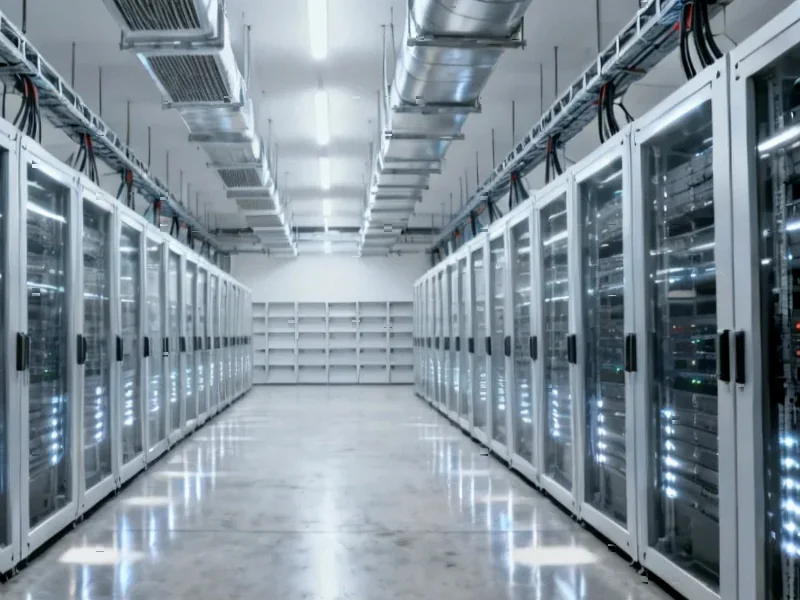According to Neowin, Microsoft has signed a $9.7 billion agreement with data-center operator IREN to secure access to NVIDIA’s advanced AI chips through a prepayment arrangement that will help IREN finance equipment purchases. The deal involves Dell supplying $5.8 billion worth of NVIDIA GB300 chips and related equipment for Microsoft’s use, with deployment scheduled for next year at IREN’s 750-megawatt Childress, Texas campus featuring new liquid-cooled data centers designed for 200 megawatts of IT capacity. Microsoft CFO Amy Hood acknowledged the company’s AI capacity crunch could persist until mid-2025, making this deal crucial for meeting demand for Copilot offerings. The arrangement allows Microsoft to expand computing capacity without building new data centers or securing additional power, while IREN’s facilities across North America offer 2,910 megawatts of renewable energy-powered capacity. This strategic move comes as the AI computing shortage intensifies across the industry.
The Infrastructure-as-a-Service Evolution
Microsoft’s deal represents a fundamental shift in how cloud providers approach capacity planning. Rather than the traditional model of building and owning data centers, Microsoft is effectively treating computing capacity as a utility it can purchase on demand. This approach mirrors the broader industry trend toward infrastructure flexibility but at an unprecedented scale. The $9.7 billion commitment—while massive—likely represents significant savings compared to the capital expenditure required for new data center construction, which involves not just building costs but also securing power contracts, navigating regulatory approvals, and managing multi-year construction timelines.
Cloud Competition Reshaped
This deal creates immediate competitive pressure on Amazon Web Services and Google Cloud, both of which are facing similar AI compute shortages. Microsoft’s ability to secure such a large block of NVIDIA capacity through 2025 gives it a significant advantage in the race to deploy AI services at scale. The timing is particularly crucial as enterprise customers increasingly make long-term commitments to AI platforms, and being capacity-constrained could mean losing major deals to competitors. We’re likely to see similar arrangements emerge across the industry as cloud providers scramble to secure scarce AI computing resources without the capital intensity of traditional expansion.
Supply Chain Winners and Losers
The deal creates clear winners beyond the immediate parties. Dell’s $5.8 billion equipment supply contract represents a massive validation of its infrastructure strategy and positions it as a crucial intermediary in the AI infrastructure ecosystem. NVIDIA continues to demonstrate its extraordinary pricing power and strategic importance—every major cloud provider is essentially building their AI future on NVIDIA’s platform, despite emerging competition from AMD and custom silicon efforts. The losers in this equation may be smaller AI companies and research institutions who will find it increasingly difficult to secure advanced AI chips as hyperscalers lock up supply through massive pre-orders.
The Financial Engineering Advantage
Microsoft’s prepayment structure represents sophisticated financial engineering that benefits both parties. For IREN, the upfront capital eliminates financing costs and de-risks their expansion. For Microsoft, they’re effectively using their AAA credit rating and massive cash reserves to secure preferential access to scarce resources while avoiding the depreciation risk of owning rapidly-obsolescing hardware. As AI chips continue advancing at a breakneck pace—with NVIDIA already teasing their next-generation architecture—owning data center infrastructure carries increasing technology risk that Microsoft has cleverly offloaded to specialized operators.
Accelerating Market Consolidation
This deal signals the beginning of a consolidation phase in the AI infrastructure market. Smaller data center operators without similar scale or financing arrangements will struggle to compete, while companies like IREN that can offer renewable-powered, liquid-cooled facilities at scale become acquisition targets or strategic partners. We’re likely to see more specialized infrastructure companies emerge to serve the unique demands of AI workloads, particularly as power consumption and cooling requirements exceed what traditional data centers can support. The $9.7 billion price tag also sets a new benchmark for what hyperscalers are willing to pay to secure AI capacity, which will ripple through the entire technology ecosystem.




